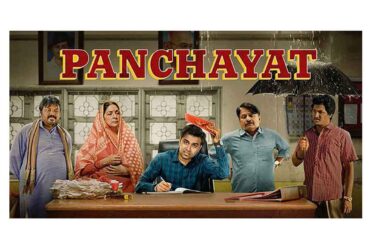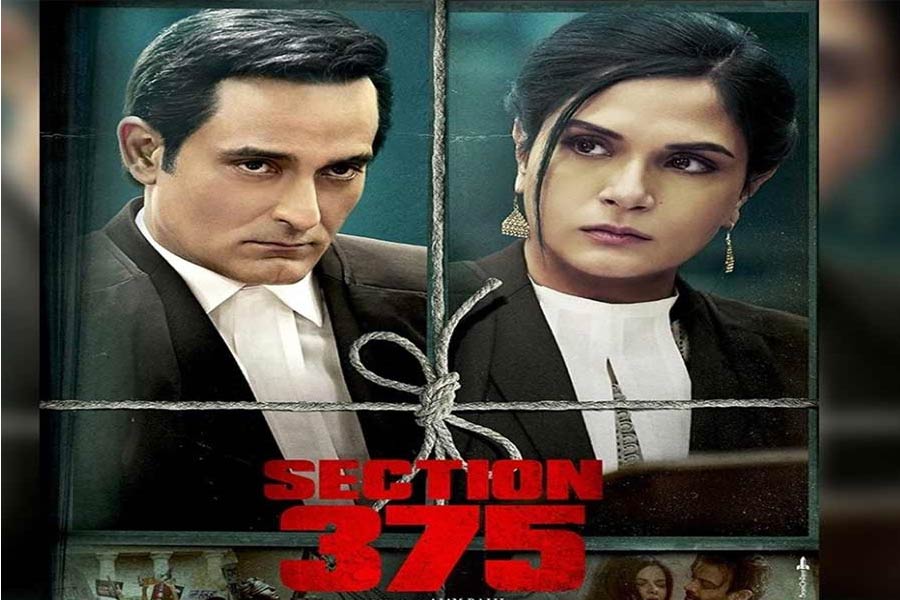The nuances of law are often too deep for us to comprehend, especially when we consider it as a tool for justice. In one of the early scenes of Section 375, the male protagonist, a senior lawyer, says that he is in favor of the law rather than justice, and how the latter is abstract and subjective. Director Ajay Bahl seeks to delve deep into this with his latest offering Section 375, a hard-hitting take on one of the most relevant topics today—consent.
Rohan Khurana (Rahul Bhat), a famous director finds himself in a mess when a rape case is filed against him by a junior costumer designer Anjali Dangle (Meera Chopra). With circumstantial and scientific evidence supporting this allegation, it’s a no-brainer for the Sessions Court to rule against the accused. Rohan’s wife (Shriswara) with the help of senior lawyer Tarun Saluja (Akshaye Khanna) challenges the decision in the High Court. Hiral Mehta (Richa Chadda), a lawyer prodigy known to be the torch-bearer of women rights, is posted as the public prosecutor for this case.
From his first scene, it’s established that Tarun has an incredible eye for detail, making him an immensely successful advocate. Not only is he calm, he also prefers to strictly adhere to the letter of law. On the other hand, Hiral is portrayed as inexperienced when it comes to big cases and what’s more, she is a protégé of Tarun.
Akshaye Khanna puts in a sophisticated performance as the methodical senior lawyer who knows how to exploit the loopholes in the law to the benefit of his clients. Akshaye Khanna performs with aplomb and yet again proves how under-rated he is in Bollywood. Richa Chadda enacts the emotionally-driven prosecution lawyer well.
The topic of consent was first tackled in Aniruddha Roy Chowdhury’s Pink. Its layered screenplay was lauded, as was the characterization of the women, which was a crucial point in driving home the message. Although contrasting in its narrative, Section 375 is also a well-crafted film and if anything, takes the subject into unchartered waters. Manish Gupta’s script is a carefully constructed jigsaw puzzle that takes its time to unravel.
In most court room dramas, the characters are already established before the trial begins and therefore, it’s more about how the case is won rather than who will win the case. Even in Pink, we couldn’t help but root for the three women and Amitabh Bachchan. Of course, the character sketches of the young men made this easier. In Section 375, Manish Gupta and Ajay Bahl attempt to blur the lines between right and wrong.
Over the last year or so, the ‘Me Too’ movement scalped many prominent names. In cases where things are black and white, it’s easy to take a stand. But what if there are grey shades to both sides? Also, how do we define consent? These are thought-provoking questions, one that’s highly relevant in today’s world and the answers aren’t so straightforward. Section 375 attempts to initiate a debate on the topic of consent.







